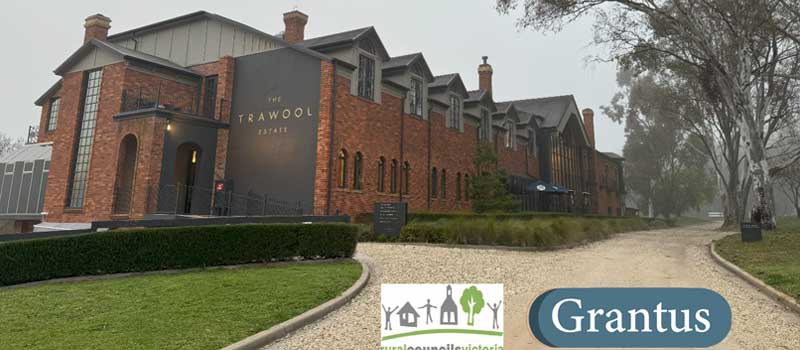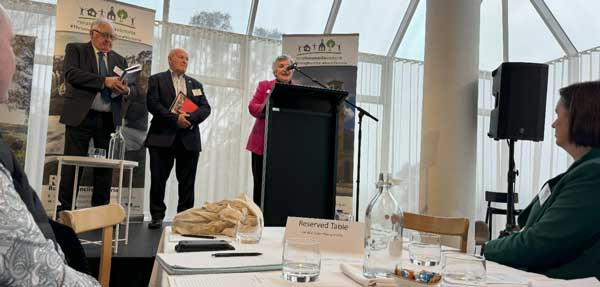
Navigating the Future
Key Insights from the Rural Councils Victoria Forum
As a proud sponsor and participant in the recent Rural Councils Victoria (RCV) annual Forum, Simon Coutts had the privilege of engaging with fellow leaders and stakeholders in the local government sector. The forum provided an invaluable platform to discuss pressing issues facing our rural councils, from financial sustainability, social media use, AI, to the impact of upcoming council and Federal elections. Here are Simon’s takeaways from this enlightening event and actionable steps councils can take:
Financial sustainability remains a critical concern for rural councils. The discussions highlighted the need for robust financial planning and risk management strategies to ensure long-term viability. It’s clear that councils must manage expenses and leverage external funding opportunities to build resilience against economic fluctuations and political priorities.
Key Insight: Financial sustainability is not just about survival; it’s about positioning councils to thrive in the years ahead.
Actionable Steps:
- Continually review short and long-term budgets: link budgets to risk management strategies, forecasting, and scenario planning. Financial planning should guide budget allocations and investments that align with Strategic priorities.
- Regularly Review Expenditure: Reset operational budgets annually and ensure managers justify their expenses are aligned with clear deliverable outcomes. Metrics are important. Significant expenses are spent on administration. Determine where efficiencies can be made by leaning into AI to reduce report writing. Allow existing staff to focus more on delivering quality services, not on admin.
- Seek Alternate Revenue Streams: Identify and develop alternative revenue sources, such as public-private partnerships (think developer contributions from housing and renewable companies) community-driven initiatives, or local business support schemes. Councils should not be seen as service providers; you should see yourselves as ‘enablers’ of growth and prosperity. Councils should not be seen as the provider of the last choice and seek to just break even.
“We are rural not regional”
Securing additional funding is vital for the success of regional projects. The forum highlighted the importance of being proactive in identifying and pursuing funding opportunities. Councils must build strong cases for funding by demonstrating clear community benefits and aligning with broader government priorities. It’s about being strategic and persistent in your efforts to secure the resources needed to drive regional development.
Key Insight: Securing additional funding is crucial for the success of regional projects.
Actionable Steps:
- Develop a Funding Strategy: Create a targeted strategy for identifying and pursuing funding opportunities. This should include the top 5 priorities, unified support, evidence and research to support the need and advocacy materials.
- Build Strong Partnerships: Strengthen relationships with other councils, community groups, and private sector partners. Collaborative projects often have a better chance of securing funding and having a greater impact.
- Create Compelling Business Cases: Invest time in developing well-researched business cases that clearly demonstrate the social, economic, and environmental benefits of your projects. This will make your applications more competitive.
“Rural areas are generating the nation’s power, food and water, we need to start seeing more of the benefits”
With council elections on the horizon, three stalwarts of the industry are set to retire from their Council and their involvement in RCV. As these three received a standing ovation, it reminded me of the many other dedicated and passionate people who live in rural communities. Without them, their communities would be worse off. Elections bring change, and with it, both challenges and opportunities for new people to contribute to their communities. No one I know is getting rich from being on council. It’s a tough job and they need support and mentoring just like a new employee or volunteer. These are tough jobs that require accountability and transparency, integrity and dedication.
Actionable Steps:
- Prepare an Election Transition Plan: Develop a transition plan that outlines key actions to take before, during, and after the elections. This plan should ensure continuity in essential services and outline steps for onboarding new council members and recognising outgoing members. Would outgoing members be prepared to mentor incumbents?
- Engage with the Community: Increase engagement with the community to understand their priorities post-election to help the new council. Use surveys, forums, or social media to gather input and communicate your council’s achievements and future plans.
- Educate Candidates: With the mandatory code of conduct and training requirements in place, provide resources and training for elected candidates to help them understand council operations, key issues, and governance requirements. Offer councillors a third party and independent person to discuss concerns or challenges. Independent members sitting on Audit and Risk Committees could become mentors and prevent conflicts in the chamber.
“Rural communities are not second best, we are better places to live and invest”
The upcoming Federal government election adds another layer of complexity to the planning process. The outcome of these elections could significantly influence local government policies and funding allocations. My advice to councils? Stay informed, be adaptable, and ensure that your strategic plans are flexible enough to accommodate potential changes in the political landscape.
Actionable Steps:
- Stay Informed: Keep abreast of political developments and potential policy changes that could impact your council. Assign someone to monitor Federal election outcomes and report on relevant issues.
- Review Strategic Plans: Review your council’s strategic priorities to ensure they are flexible and adaptable to potential changes in Federal policies. Consider developing contingency plans for different election outcomes.
- Engage with Federal Representatives: Proactively engage with local Federal representatives to advocate for your council’s needs and priorities. Provide well-constructed advocacy documents and share these with constituents. Building relationships early can help influence policy decisions and announcements that benefit your region. Despite having a personal political preference, always stay apolitical as a council and plan for both sides to win.
The RCV Forum highlighted the growing importance of social media for local governments. Understanding its benefits, opportunities, and risks is crucial for public servants today. Councils must adopt a strategic approach to social media, and look for ways to use it to your advantage.
Key Insight: Social media has risks, but it also offers incredible benefits and opportunities, especially around stakeholder engagement.
Actionable Steps (Out of the Box):
- Crowdsourcing Ideas: Leverage social media to crowdsource ideas and solutions from the community. For instance, run campaigns asking residents for input on local projects, public spaces, or community programs. This not only generates valuable insights but also fosters a sense of ownership and participation among citizens.
- Real-Time Crisis Communication: Use social media as a real-time communication tool during emergencies or crises. Provide timely updates, safety information, and resources to keep the community informed and safe. A well-managed social media response can enhance public trust and demonstrate the council’s readiness and reliability.
- Hyperlocal Targeting: Utilise social media’s targeting features to deliver tailored messages to specific segments of your community. For example, use geographic targeting to inform residents in particular neighbourhood’s about road closures, local events, or specific council services that are relevant to them.
- Storytelling and Humanising Council Work: Share behind-the-scenes stories and profiles of council staff to humanise the organisation and build stronger connections with the community. Highlight the work being done by the council in a way that resonates on a personal level with residents.
- Utilising Social Listening Tools: Implement social listening tools to monitor public sentiment and conversations about council activities. This can help councils quickly identify issues, respond to concerns, and understand community needs in real-time, allowing for more responsive and adaptive governance.
- Gamification for Civic Engagement: Introduce gamified elements to your social media strategy, such as challenges or quizzes related to local history, environmental initiatives, or community programs. Offer small rewards or recognition to encourage participation and raise awareness of council initiatives.
Finishing off the RCV Forum was a demonstration on the future of planning with an “Online Planning Tool Powered by AI” demonstration. This innovative tool is set to transform the way councils handle planning permits, offering faster, more accurate decision-making and reducing administrative burdens. By integrating AI into the planning process, councils can streamline approvals, enhance transparency, and better meet community needs. Embracing this technology not only boosts efficiency but also positions councils at the forefront of smart governance.
Key Insights:
AI opens the door for a wealth of possibilities for other council functions. AI can revolutionise areas like infrastructure maintenance, resource allocation, and community engagement, offering councils the ability to make data-driven decisions with unprecedented precision.
Actionable Steps:
- Explore AI Opportunities: Begin by identifying key areas within your council operations where AI could have the most significant impact, such as permit processing, infrastructure management, report development or customer service.
- Pilot AI Projects: Consider other pilot programs to test AI solutions in targeted areas. Start small, evaluate the outcomes, and scale up successful initiatives.
- Invest in AI Training: Equip your team with the skills needed to leverage AI effectively. Provide training on AI tools and data analytics to ensure your staff can maximise the benefits of these technologies.
- Engage with Tech Partners: Build partnerships with technology providers specialising in AI. These collaborations can help you stay at the cutting edge of innovation and ensure that your AI implementations are both effective and sustainable.

The RCV Forum served as a timely reminder of the challenges and opportunities that lie ahead for rural councils. Addressing these key issues is essential for the future prosperity of our communities. As we move forward, Grantus encourages all stakeholders to continue the dialogue, collaborate closely, and work towards solutions that will benefit our rural regions for generations to come.
We are eager to hear your thoughts on these issues. Let’s continue the conversation. Reach out to discuss how we can collectively navigate the future of rural governance and prosperity.

No Comments